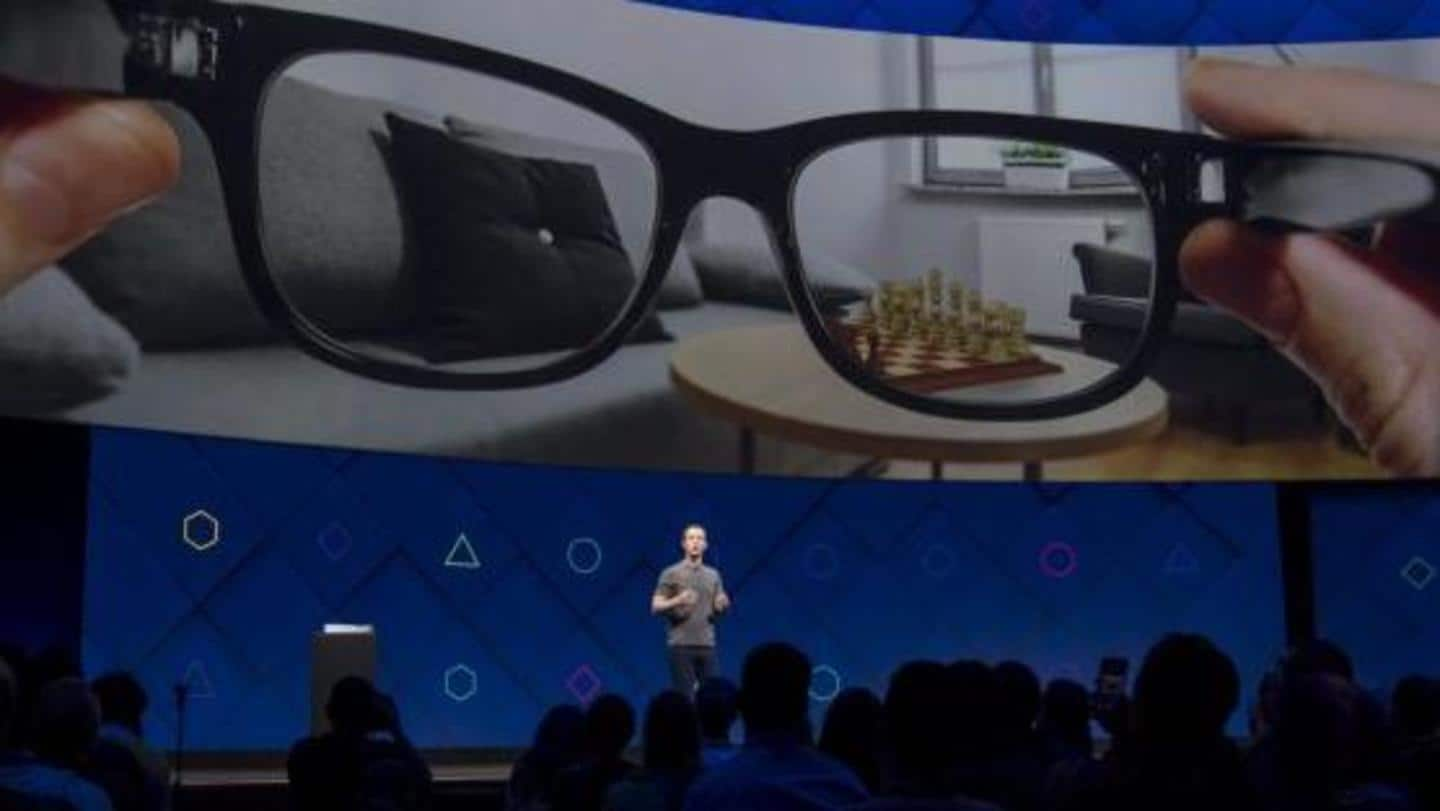
Facebook's smart glasses coming in 2021, but without Augmented Reality
What's the story
Facebook's much-vaunted smart glasses will be launching soon. The glasses are coming "sooner than later" in 2021, but without the graphical overlays promised through Augmented Reality (AR) technology.
The revelation came right from Andrew Bosworth, who oversees the hardware aspect of the project while serving as the Vice President of Augmented and Virtual Reality at Facebook.
Bye-bye AR
Facebook avoids the term Augmented Reality; prefers connected glasses instead
Last year, Facebook CEO Mark Zuckerberg had revealed that the glasses were being built in partnership with Ray-Ban, which is owned (along with virtually every known brand in the industry) by the Luxottica Group SpA.
While media reports had bandied the Augmented Reality term alongside the smart glasses, the company seems to be playing it safe and describing them as "connected glasses" only.
'Connected glasses'
Facebook wants us to temper our AR expectations
"These are certainly connected glasses, they are certainly providing a lot of functionality, we're being quite coy about which functionality precisely we are providing," Bosworth said of Facebook's soon-to-be-launched smart glasses.
"We're excited about it but we don't want to over-hype it. We're not even calling it augmented reality, we're just calling it 'smart glasses,'" he added.
At least not yet
Facebook never intended to incorporate AR in these smart glasses
Facebook has been quite consistent and clear about the fact that the upcoming smart glasses will not implement AR functionality in the current iteration.
Zuckerberg even categorically stated in the promotional video that the smart glasses will not have AR functionality, but instead act like internet-enabled devices.
Facebook's experimental Spark AR Platform seems to be the source of the media's confusion. It's strictly R&D.
Capturing memories
Smart glasses will most likely be equipped with a camera
Not much is known about the exact workings or capability of these smart glasses apart from their internet-connected nature. However, it is certain that there will be no computer-generated images overlaid onto the real world, as is consistent with AR implementations.
Bosworth has, however, hinted at camera integration by citing a use case where the device could be used to seamlessly capture memories.
Quote
Bosworth explains how the glasses could help capture memories
"By the time you get the phone up, not only have you probably missed it, but if you don't miss it, you're probably watching the real event but through your phone. If you have the right technology, it can get out of the way."
Catching up
Meanwhile, Apple Glass enters second stage of production
Guess who's also rumored to launch next year? According to a recent supply chain report, an Apple Glass prototype is in "phase two" of production. The industry source claims that Apple's equivalent offering has passed the first stage and entered the subsequent one.
However, there's no clarity on how many production stages the product will go through before it is ready for prime time.